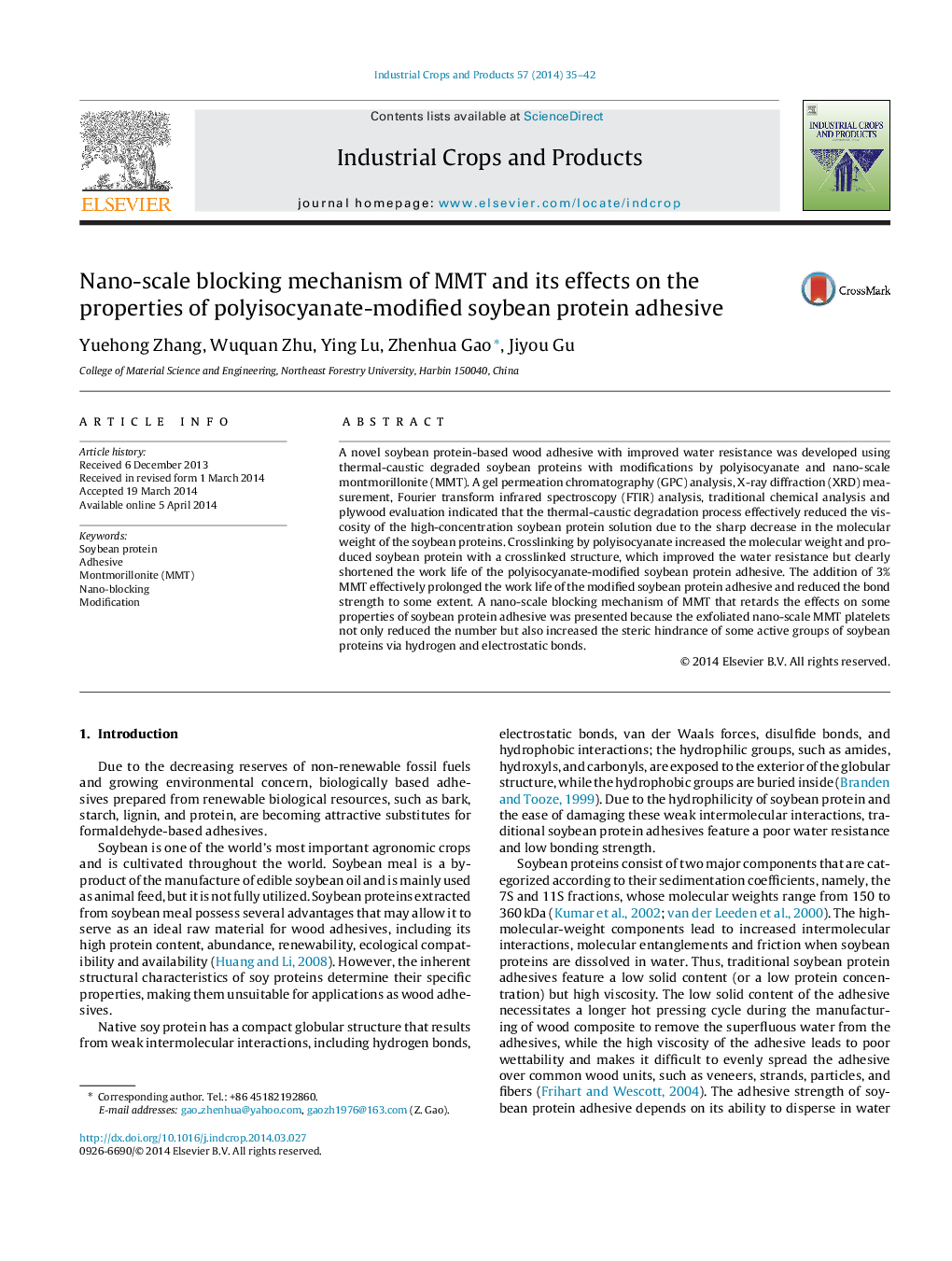| Article ID | Journal | Published Year | Pages | File Type |
|---|---|---|---|---|
| 4513333 | Industrial Crops and Products | 2014 | 8 Pages |
•A water-resistant soybean protein adhesive with good technological applicability is formulated.•MMT is found to retard the properties of the soybean protein adhesive.•This retarding effect is further confirmed by XRD, FTIR and chemical determination.•A nano-blocking mechanism is proposed to explain the MMT retarding effect.
A novel soybean protein-based wood adhesive with improved water resistance was developed using thermal-caustic degraded soybean proteins with modifications by polyisocyanate and nano-scale montmorillonite (MMT). A gel permeation chromatography (GPC) analysis, X-ray diffraction (XRD) measurement, Fourier transform infrared spectroscopy (FTIR) analysis, traditional chemical analysis and plywood evaluation indicated that the thermal-caustic degradation process effectively reduced the viscosity of the high-concentration soybean protein solution due to the sharp decrease in the molecular weight of the soybean proteins. Crosslinking by polyisocyanate increased the molecular weight and produced soybean protein with a crosslinked structure, which improved the water resistance but clearly shortened the work life of the polyisocyanate-modified soybean protein adhesive. The addition of 3% MMT effectively prolonged the work life of the modified soybean protein adhesive and reduced the bond strength to some extent. A nano-scale blocking mechanism of MMT that retards the effects on some properties of soybean protein adhesive was presented because the exfoliated nano-scale MMT platelets not only reduced the number but also increased the steric hindrance of some active groups of soybean proteins via hydrogen and electrostatic bonds.
